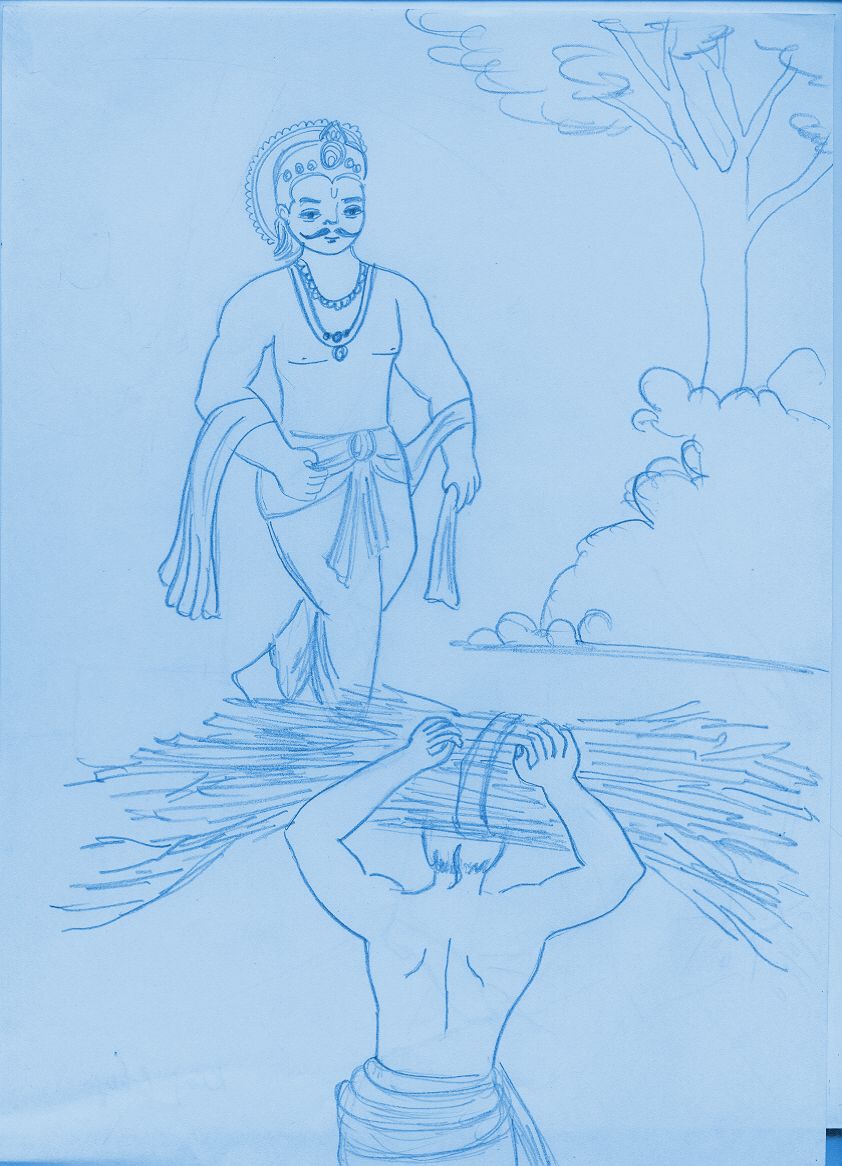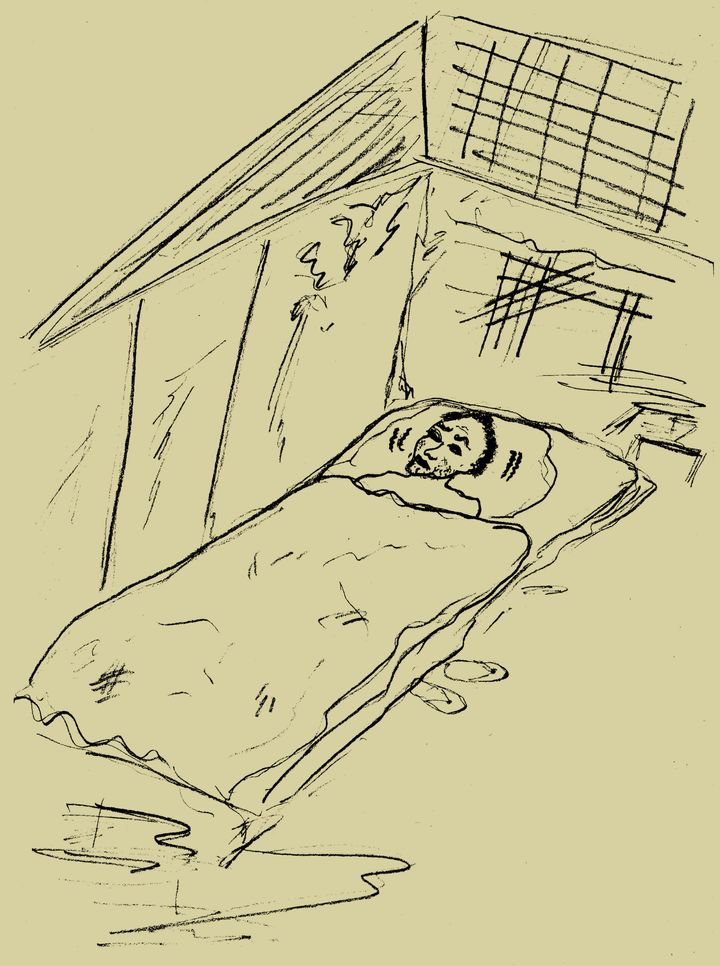King Bhoja

King Bhoja was taking a leisurely evening stroll by a river. He was enjoying looking at the trees and the flowers. He spotted a man carrying a huge bundle of sticks on his head. The woodcutter was apparently carrying more than he could easily manage and was perspiring profusely. But he looked happy. The King felt an urge to talk to him. The king stopped the man and said, “Hey, who are you?” The man replied cheerfully, “I’m King Bhoja”. The King was taken aback. He asked, “Who?” The man repeated, “King Bhoja!” The King was now quite intrigued. He said, “Well, if you are King Bhoja, would you tell me your income?” The woodcutter replied, “Why not? I earn six paise per day!”
The King thought about the huge sum of money that was there in his coffers. How could a man who earned six paise a day think himself to be a king? How could he look so happy? The King thought of the numerous worries and problems that besieged him. He wanted to know more. So he asked the old man, “If you earn just six paise per day, what are your expenses? Are you really King Bhoja?”
The old man said, “Well, if you really want to know, let me explain. I earn six paise every day. I give one paisa each to my capitalist, my minister and my borrower. I deposit one paisa in my savings account and use one paisa to serve my guests. The remaining one paisa, I keep for myself.” By now the King was totally hooked. What planning! What vision! By a man of such humble means! But how was he doing this? It was like a puzzle and the King wanted to solve it. He said, “Please explain, I don’t understand.”
The wood cutter said, “Alright. My parents are my capitalists, because they invested in my upbringing. They expect me to look after them in their old age. They invested and lent with a plan to earn interest and get the principal back too. Isn’t that what all parents expect from their children?”
The King was quick to ask, “What about your borrower?” The old man smiled, “My children of course! They are young. It is my obligation to support them. But when they are older and are able to earn, they shall repay me, just as I am repaying my parents. They too shall discharge their Pitri-rin!”
The King was quite at a loss for words, “Who is your minister?” asked the King. “My wife of course,” replied the man. “She runs my house; she is in charge of everything on the home front. I depend on her for physical as well as emotional support. She is my best friend and advisor.”
“Where is your savings account?” he asked sheepishly. The old man said, “A person who does not save for his future is a fool. Life is full of unforeseen contingencies. Each day I set aside one paisa into my treasure.”
The king said, “Go on, please.” The wood cutter said, “I set aside the fifth paisa to serve my guests. As a householder, it is my duty to keep an open house for guests. Who knows when a guest may drop by? I have to keep aside something for that eventuality.”
The man continued smiling, “The sixth paisa my friend I keep for myself; to look after my daily needs.”
The King was immensely impressed as the wise old man put all the pieces of the jigsaw puzzle into place.
Surely, happiness and contentment do not stem from wealth, position or worldly comforts. Attitude and disposition towards your current situation are important. If one can learn to live within his means and organize one self accordingly, a lot is achieved. This is the power of positive thinking and right attitude. The old wood cutter was a king because his attitude was such!


Comments ()